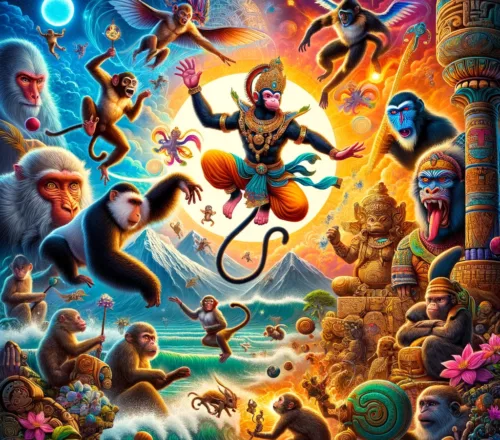
Table of Contents
Devolution
Devolution
Ruled by laws of destruction
Evolution
Ruled by laws of change
Revolution
Ruled by laws of opposition
Devolution
Ruled by laws of destruction
Destruction of family
Villages, crops, work, health
Life in general
Ruled by evil
And evil doers
What is devolution
Devolution refers to the transfer of power, authority, or responsibility from a central government to regional or local governments. This process allows for more localized decision-making and governance, enabling regions or communities to have a greater say in their own affairs. Devolution can occur in various forms and can include:
Political Devolution: The delegation of specific powers to regional or local governments, allowing them to manage certain aspects of governance, such as education, health care, transportation, and economic development.
Administrative Devolution: The transfer of administrative responsibilities, where local governments receive authority to manage and implement policies and programs.
Fiscal Devolution: The authority given to local governments to collect taxes or manage budgets, allowing them greater control over financial resources.
Devolution is often pursued to enhance democratic governance, improve responsiveness to local needs, promote regional development, and reduce the burden on central authorities. Various countries have implemented devolution to varying extents, such as the United Kingdom with its devolved administrations in Scotland, Wales, and Northern Ireland, or Spain with its autonomous communities.
The effectiveness and implications of devolution can vary, leading to debates about issues such as accountability, efficiency, regional disparities, and the balance of power between different levels of government.
What is destruction
Destruction refers to the act of causing significant damage or ruin to something, making it unusable, ineffective, or non-existent. It can apply to various contexts, including:
Physical Destruction: Such as the demolition of buildings, the devastation caused by natural disasters (like earthquakes or hurricanes), or the annihilation of objects through violence or conflict.
Environmental Destruction: Refers to harm inflicted on ecosystems, such as deforestation, pollution, or loss of biodiversity, often due to human activities.
Emotional or Psychological Destruction: This can refer to the damage done to a person’s mental or emotional well-being, often due to trauma, abuse, or neglect.
Destruction in Literature or Art: It can also refer to themes of ruin or decay present in various artistic expressions, symbolizing deeper societal or personal issues.
Destruction can be intentional or unintentional, and it often has significant consequences on individuals, communities, and the environment.
What is evolution
Evolution is the process through which populations of organisms change over time through variations in their genetic traits. It is driven by mechanisms such as natural selection, mutation, genetic drift, and gene flow. The theory of evolution, primarily associated with Charles Darwin, explains how species adapt to their environments and how new species may arise from common ancestors.
Key concepts in evolution include:
Natural Selection: This mechanism suggests that individuals with traits better suited to their environment are more likely to survive and reproduce. Over time, these advantageous traits become more common in the population.
Mutation: Random changes in an organism’s DNA can lead to new traits. Some mutations may be beneficial, neutral, or harmful, and they contribute to genetic diversity.
Genetic Drift: This refers to random changes in the frequency of genetic traits in a population, particularly in small populations, which can lead to significant differences over time.
Gene Flow: This is the transfer of genetic material between populations through migration. It can introduce new genetic variation into a population.
Common Descent: The principle that all living organisms share a common ancestor, which explains the similarities in structure, function, and genetic makeup across different species.
Overall, evolution is a fundamental concept in biology that explains the diversity of life on Earth and how species adapt to changing environments over long periods.
What is change
Change refers to the process of becoming different or undergoing a transformation. It can occur in various contexts, including personal growth, societal shifts, technological advancements, and environmental transformations. Change can be gradual or sudden, and it can have positive or negative effects depending on the circumstances. In a broader sense, change is a fundamental aspect of life and is often seen as an opportunity for improvement or adaptation. Here are a few specific areas where the concept of change applies:
Personal Change: This involves individual growth and development, such as changing habits, attitudes, or lifestyles.
Social Change: This refers to shifts in societal norms, values, and structures over time, which can be driven by cultural movements, policy changes, or economic factors.
Organizational Change: In a business context, this can involve changes in leadership, strategy, culture, or processes to improve performance or adapt to new market conditions.
Technological Change: This includes innovations and advancements that alter how we live, work, and interact, such as the rise of the internet and digital technologies.
Environmental Change: This encompasses changes to the natural environment due to factors like climate change, urbanization, and resource depletion.
Overall, change is a complex and multifaceted concept that is intrinsic to our experiences and the world around us.
What is revolution
The term revolution can refer to a variety of concepts depending on the context in which it is used. Here are some common interpretations:
Political Revolution: This typically refers to a significant and rapid change in political power or organizational structures, often through the overthrow of a government or social order. Historical examples include the American Revolution (1775–1783) and the French Revolution (1789–1799).
Social Revolution: This involves profound changes in social structures and cultural norms, leading to the transformation of society. It may or may not involve political change.
Industrial Revolution: This refers to the period of major industrialization that took place during the late 18th and early 19th centuries, starting in Britain and spreading to other parts of the world. It marked a shift from agrarian economies to industrial ones, characterized by the growth of factories, urbanization, and technological advancements.
Scientific Revolution: This term describes a period of significant advancements in scientific thought and discoveries, particularly from the 16th to the 18th centuries. It laid the groundwork for modern science and fundamentally changed the understanding of the natural world.
Cultural Revolution: This can refer to a period of significant cultural change, often associated with artistic, intellectual, or ideological shifts within a society.
Astronomical Revolution: In astronomy, a revolution refers to the movement of one celestial body around another, such as the Earth revolving around the Sun, which takes about one year to complete.
Mathematical or Cyclical Revolution: In mathematics, revolution can refer to the circular motion of an object around a fixed point.
The specific meaning of revolution will depend on the context in which it is discussed.
What is opposition
The term opposition can refer to different concepts depending on the context in which it is used. Here are a few common meanings:
Political Context: In politics, opposition refers to political parties or groups that challenge the current ruling party or government. These opposition parties work to hold the government accountable and present alternative policies or viewpoints.
Astronomy: In astronomy, opposition refers to the positioning of celestial bodies. For example, a planet is in opposition when it is opposite the Sun in the sky as observed from Earth. This usually means the planet is at its closest point to Earth, making it appear larger and brighter in the night sky.
Philosophy and Logic: Opposition can signify a disagreement or contradiction between two ideas or propositions. In logic, it refers to the relationship between propositions that cannot both be true at the same time.
Sports: In sports, opposition can refer to the team or player that one is competing against.
General Use: In everyday language, opposition can simply mean resistance or hostility to an idea, plan, or action.
What are evil rulers
Evil rulers are typically defined as leaders or authorities who govern with cruelty, oppression, or malice, often prioritizing their own power and interests over the well-being of their citizens.
Characteristics of such rulers may include:
Tyranny: They may use authoritarian methods to maintain control, suppress dissent, and violate human rights.
Corruption: Their leadership may be marked by greed, embezzlement, and the use of political power for personal gain.
Violence and Repression: They might employ violent tactics against opposition, including imprisonment, torture, or execution of political opponents.
Propaganda: They often manipulate information to maintain power, distort facts, and control public perception.
Disregard for Justice: They may ignore or manipulate legal systems to maintain their authority and punish rivals.
Discrimination: Evil rulers often target specific groups based on ethnicity, religion, or ideology, fostering division and hatred.
Historical examples of such rulers include figures whose regimes caused widespread suffering and loss of life. The term evil ruler is subjective and can vary depending on cultural, political, and historical contexts.
Thank you for reading, shares and comments!
✨ Comment Policy ✨
We welcome thoughtful, kind, and constructive comments that contribute to meaningful conversations.
Please note:
- Promotional links and unsolicited offers will be removed.
- Spam, irrelevant content, or self-promotion without prior permission will not be published.
- We value quality engagement over quantity — thank you for helping us keep this a respectful and inspiring space!
Embark on a journey into the realm of affiliate marketing and craft your own website within a vibrant, supportive community. Join me in this adventure, where you can begin as a free starter and stay as long as you desire. Enjoy complimentary hosting and foundational teachings to set you on your path. For those with advanced skills, opportunities to elevate your expertise await. Take a moment to explore and witness the magic for yourself!




